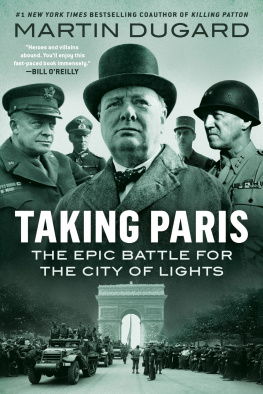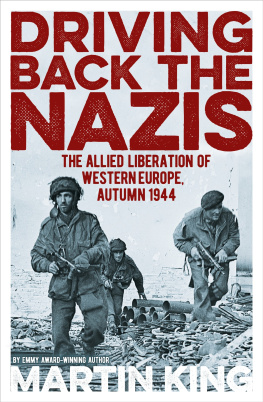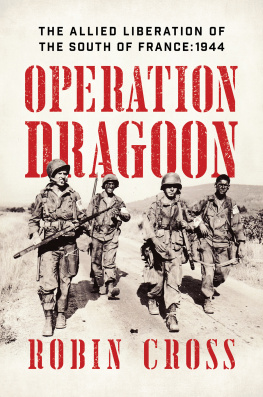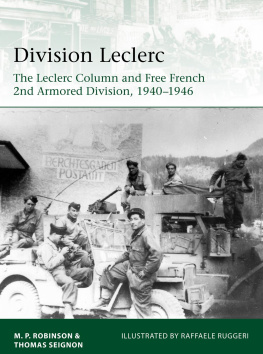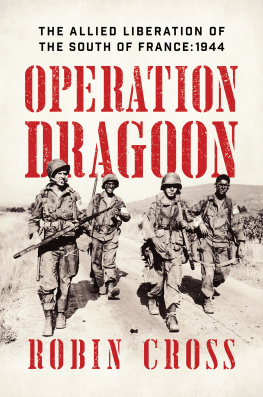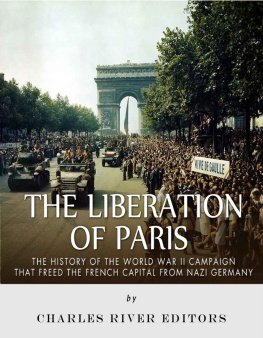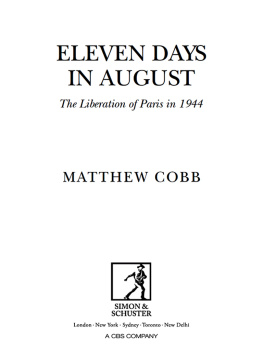Published in Great Britain and
the United States of America in 2015 by
CASEMATE PUBLISHERS
10 Hythe Bridge Street, Oxford OX1 2EW, UK
and
1950 Lawrence Road, Havertown, PA 19083, USA
William Mortimer-Moore 2015
Hardcover Edition: ISBN 978-1-61200-343-6
Digital Edition: ISBN 978-1-61200-344-3
A CIP record for this book is available from the British Library
All rights reserved. No part of this book may be reproduced or transmitted in any form or by any means, electronic or mechanical including photocopying, recording or by any information storage and retrieval system, without permission from the publisher in writing.
Printed in the United Kingdom by Short Run Press, Exeter
For a complete list of Casemate titles, please contact:
CASEMATE PUBLISHERS (UK)
Telephone (01865) 241249
Fax (01865) 794449
Email: casemate-uk@casematepublishers.co.uk
www.casematepublishers.co.uk
CASEMATE PUBLISHERS (US)
Telephone (610) 853-9131
Fax (610) 853-9146
Email: casemate@casematepublishers.com
www.casematepublishers.com
Preface
A Mission of National Importance
GENERAL LECLERC HAD BEEN FOND OF PARTRIDGE SHOOTING since his boyhood in Picardy, and gladly pursued this sport again during off-duty hours in French Morocco during late 1943. His chief of staff, Colonel Jacques de Guillebon, or his young ADC, Lieutenant Christian Girard, usually accompanied him on these outings. Both men, like himself, had followed General de Gaulle and the small but splendid flag of Free France since the country fell to the Germans in June 1940. But on that first Sunday of December Leclerc was accompanied by Captain Alain de Boissieu.
While Leclerc had been in Africa since de Gaulle gave him his first mission in August 1940, Boissieus route to the Free French, as de Gaulles followers were known, was more tortuous. Captured in 1940 following one of the last French cavalry charges, Boissieu was among a select group of officers who escaped from Germany to the Soviet Union only to be re-imprisoned. But when Hitler attacked the Soviet Union in June 1941, Sir Stafford Cripps, Great Britains ambassador to Moscow, negotiated their release.
De Gaulle always favoured men who made strenuous efforts to join him, and from this group, known as Russians, he selected Boissieu and Captain Pierre Billotte for his staff. Though Boissieu repeatedly begged to join Leclerc, de Gaulle prefered using him as a roving envoy to French colonies turning to Free France for leadership rather than Marshal Ptains collaborationist government in Vichy. In late 1943, de Gaulle finally allowed Boissieu to join La Colonne Leclerc when its successful conquest of southern Libya was finished and Leclerc was forming a new armoured division around his original force.
But Leclerc was anxious, needing to know what he was aiming at. Which of the French Armys new American-equipped armoured divisions would go to England and join in the invasion of Europe? What could he tell his men? When would he finally receive all the equipment he had been promised? Only General de Gaulle could tell him and, knowing that de Gaulle liked the dark, studious-looking Boissieu, he was the obvious envoy to send. There were even inklings of romance between Boissieu and de Gaulles pretty daughter Elizabeth.
While spaniels gathered fallen partridges, Leclerc briefed Boissieu. Uppermost in Leclercs thoughts was that during September the Allies had informally agreed that a French division should join in the forthcoming invasion of northern France and assure the liberation of Paris.
On 6 December Boissieu boarded a Dakota transport aircraft for Algiers. Usually dour-faced, de Gaulle greeted Boissieu with a slight smile before reading Leclercs letter. You tell Leclerc that I attach great importance to what happens to his division which, if it becomes necessary, will have to take the artillery it is still lacking from another large unit, said de Gaulle firmly. As for the Tank Destroyer regiment, maybe he will have to choose one from among those already formed. Your division, I very much hope, will be put at the disposal of the Allied command in Europe, but make it clear to Leclerc that if it happens that I need him for a mission of national importance then in such a case he must obey my instructions only. The situation among the Allies is not good, anything could happen. American politicians manoeuvre against me; in particular Roosevelt wants to impose AMGOT
De Gaulle wrote the gist of this as a handwritten note and passed it to Boissieu. But when Boissieu turned towards the secretarys door, de Gaulle shouted, Where do you think youre going?
To Madame Aubert to get it typed up, replied Boissieu.
I dont want a record of this, said de Gaulle. If the Americans know that I intend to use the 2e DB to re-establish the French state in Paris, they wont transport you. Leclerc must keep this to himself.
Boissieu stayed in Algiers to chase up the balance of the 2e DBs artillery, which had erroneously been sent to Anzio, even though equipment allocated to the French rearmament programme was marked with long Tricolore stripes before leaving the USA. But, when Boissieu returned to the 2e DBs HQ in Morocco, Leclerc grinned broadly at de Gaulles note. Now Leclerc wanted Boissieu to visit de Gaulle again, before the meeting with Eisenhower planned for 24 December.
De Gaulle received Boissieu at Les Glycines on 15 December. Leclercs second letter assured Free Frances leader that the 2e DB would do what he expected, but they could not embark for England without the promised equipment and missing artillery regiments. Recognising how much Leclerc wanted this plum mission, de Gaulle smiled and explained to Boissieu that while he wanted the 2e DB to liberate Paris, this goal was only notional to les Anglo-Saxons. Then, taking a piece of writing paper from his desk, de Gaulle wrote that he appointed General Leclerc interim military governor of Paris, while saying that the appointment was interim because General Koenig
Immediately afterwards Boissieu telephoned General Leclerc, Everything is going for the best. Back in Temara, Boissieu suffered a serious malarial attack and was hospitalised in Rabat.
On 30 December 1943, General de Gaulle welcomed the Allied Supreme Commander, General Dwight D. Eisenhower, to Les Glycines to discuss the progress of the US-sponsored French rearmament programme. De Gaulle also obtained Eisenhowers verbal confirmation that Leclercs division would join in the northern operation while General de Lattre de Tassignys French First Army prepared for landings in Provence. In closing, de Gaulle asked Eisenhower to promise that the Allies would not enter Paris without French troops. Eisenhower replied, You may be sure that I have no notion of entering Paris without your troops. People have given me the reputation of being abrupt. I have the feeling that you informed your opinion of me without having made enough allowance for the problems I was confronted with in performing my mission with regard to my government. At that time it seemed to me that you did not want to put your full weight behind me. As a government you had your own very difficult problems. But it seemed to me that the carrying out of operations had absolute priority. (At present) I admit that I was unjust to you and I had to tell you so.
De Gaulle always regarded the French language as part of Frances identity, always to be kept in the forefront. On this occasion he relented. You are a man, he told Eisenhower in English, before assuring him that France would give him every assistance; especially when confronted with the question of Paris in the field of action.


